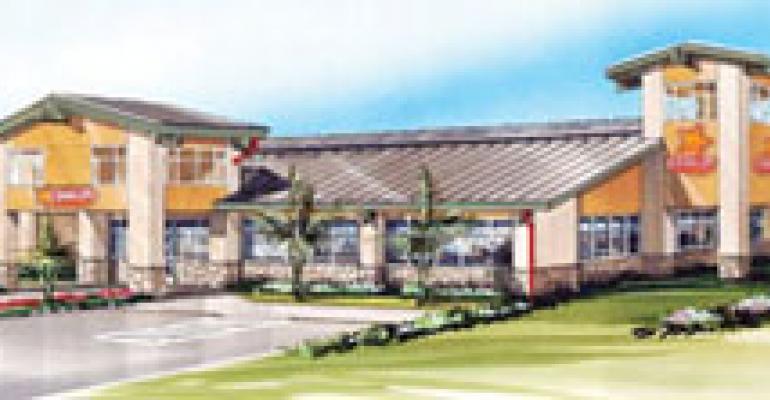Although the economic downturn is affecting how much money some restaurants are allocating for eco-friendly initiatives, several quick-service chains nonetheless are moving forward with plans to make their operations greener.
Officials at such chains as Arby’s, Carl’s Jr., Chipotle Mexican Grill and Subway say they are committed to converting their business models into more eco-friendly ones in order to be more socially and, in time, fiscally responsible.
Atlanta-based Arby’s said it broke ground last month on its first Leadership in Energy and Environmental Design, or LEED, certified green restaurant. The company-owned store is set to open in April in Magnolia, Texas.
The chain said the store would use “green power,” which means that at least 35 percent of the building will receive its electricity from renewable sources. The restaurant will be “environmentally friendly from the kitchen to the parking lot,” officials said.
The unit will feature Energy Star-certified kitchen equipment, a tankless water heater and an energy-efficient HVAC system. Its interior will be outfitted with recycled materials, and paints, adhesives and sealants all will contain fewer pollutants. In addition, the parking lot will offer preferred parking spots to those customers who drive fuel-efficient vehicles, Arby’s said.
CKE Restaurants Inc., parent of the Carl’s Jr. and Hardee’s fast-food brands, opened a green flagship restaurant in February near its headquarters in Carpinteria, Calif. Company officials said they would evaluate the conservation and energy-efficient efforts achieved at the new Carl’s Jr. location to determine whether they could be implemented systemwide.
The new store, the company’s first green Carl’s Jr., features Energy Star-rated equipment, solar reflective roofing material that cuts heat absorption, a rainwater reuse system, an electronic energy management system, and a catalyst that converts charbroiler particulate into carbon dioxide and water, reducing smoke, odors and emissions.
In order to reduce the construction footprint, the Carl’s Jr. store was constructed from the existing shell of a former restaurant, officials said.
“With our ongoing emphasis on corporate environmental initiatives, we are demonstrating that we can be both a good neighbor and a financially sound business,” said Andrew F. Puzder, the chain’s chief executive. “Our current companywide environmental initiatives are either cost-neutral or result in a cost savings benefit, providing for a better planet while also contributing to the bottom line.”
CKE previously has implemented such companywide environmental initiatives as electronic waste recycling; the recycling and conversion of fryer oil into biofuel; and compact fluorescent lamp, or CFL, lighting replacement at all corporate-owned stores.
Chipotle Mexican Grill, which is known for using organic or naturally raised ingredients, constructed a partially wind-powered store in Gurnee, Ill., last fall. The store features a 6-kilowatt wind turbine that is expected to generate 10 percent of the store’s electrical needs, officials at the Denver-based chain said. The interior design uses recycled drywall, recycled barn metal, more efficient faucets, low-flow toilets and LED lighting.
DiPasqua Enterprises, a Subway franchisee, opened its first LEED-certified restaurant in Kissimmee, Fla., last month. The Milford, Conn.-based sandwich chain currently boasts five Subway “eco-stores” nationwide, three of which are currently pending LEED certification.




